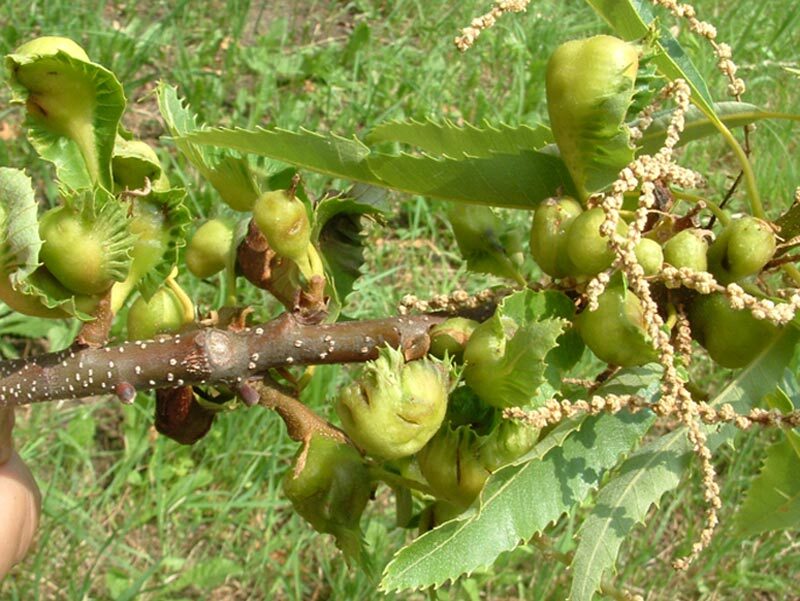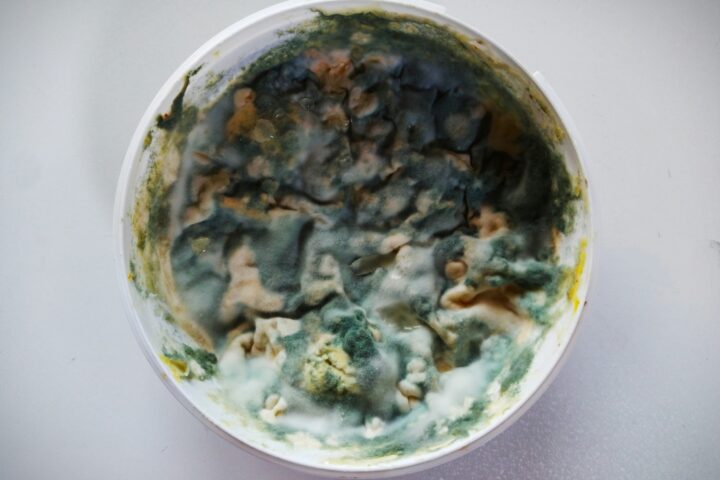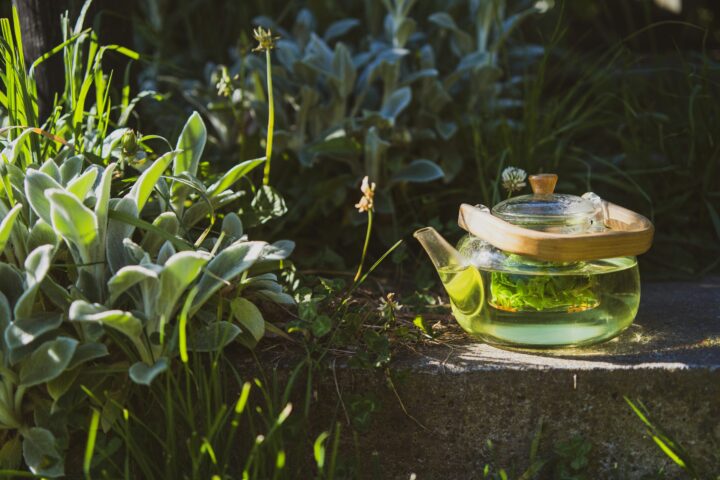
Invasive species threaten native plants
The economic interdependence of the world has increased greatly over the past years and decades. Due to the brisk trade activity between the continents, invasive plant and animal species are also spreading faster and faster. This can lead to serious problems for native vegetation and agriculture. According to the FOEN, the canton of Ticino is particularly affected.
Wednesday, August 9, 2023
In brief:
- Due to the increasing interconnectedness of world trade, invasive species are spreading more and more rapidly.
- Because they have hardly any natural enemies in the new areas, they spread rapidly.
- In agricultural crops, invasive pests sometimes wreak havoc.
One example of an invasive insect species is the sweet chestnut gall wasp. It originated in China and was first detected in Piedmont in 2002. From there, it has spread to the canton of Ticino. It was discovered there for the first time in May 2009. In the meantime, almost all chestnut forests in Ticino are infested.
Danger for Ticino Marroni
The female of the sweet chestnut gall wasp lays her eggs in twig and flower buds of chestnut trees. The larvae hatch after one month and overwinter unnoticed in the buds. In spring, the conspicuous galls then form on the shoots, leaves and flowers. As a result, leaves become deformed and individual shoots die. Although the infestation only rarely leads to the death of the tree, it is severely weakened. Susceptibility to other diseases increases and chestnut production drops drastically. This has extremely negative consequences for the chestnut trade in Ticino and Piedmont.

Cases are accumulating
The occurrence of exotic species is nothing new in Switzerland. But in recent years, the cases have increased. Other examples are the Asian long-horned beetle and the citrus long-horned beetle. They infest deciduous trees of all kinds, making them more susceptible to disease and wind breakage. Another threat comes from the god tree - a so-called invasive neophyte - which originated in China. It grows and reproduces very rapidly, driving out native plants. This prevents the natural regeneration of forests. What's more, nothing else grows in the immediate vicinity of a god tree.
Biodiversity suffers
The native honey bee is also threatened by an invasive species. Since 2017, the Asian hornet also occurs in Switzerland. This one preys on the honey bee. In the recent past, the hornets, which originate from Southeast Asia, have spread strongly in Switzerland. Control is currently only possible by finding and removing the hornet's nest.
Crops threatened
Another example of an invasive pest is the Japanese beetle. It was first discovered in Switzerland in 2017 in Ticino. In 2023, a larger population north of the Alps was observed for the first time in the canton of Zurich. The Japanese beetle is not very choosy when searching for food. It eats almost everything. This is what makes it so dangerous for farmers' crops. Like the Japanese beetle, the cherry vinegar fly has come to Europe from East Asia. It attacks cherries, berries and soft fruits and causes microbial rot, which means that the fruit cannot be sold or used to make fruit brandies. Farmers rely on pesticides to control both the Japanese beetle and the cherry vinegar fly. In addition to invasive insect pests, viral or bacterial diseases are also spreading. One example is the bacterium Xylella fastidiosa (Xf), which the Federal Office for Agriculture describes as one of the most dangerous bacteria for plants worldwide. The bacterium uses olive trees as host plants, for example, but is also a major threat to crops in this country.
Watch out on vacation
People returning from vacation must therefore be extremely careful about which plants they bring back from their trip. Since 2020, Switzerland has therefore banned the import of plants from outside the EU. Importation is only possible with a special phytosanitary certificate. In this way, the authorities want to prevent dangerous neobiota from entering Switzerland, which can have catastrophic consequences for nature and agriculture.
Species-specific control required
Specific control strategies are needed against dangerous invasive species. The Federal Office for the Environment has already developed a concept in 2011 to protect the Swiss forest. However, measures cannot be developed against all harmful organisms at the same time. For agriculture in particular, the protection of plants is enormously important. Around 40 percent of global crop yields are lost each year due to pests and diseases. Without crop protection products, losses would probably be twice as high.
Sources
Federal Office for the Environment FOEN: Sweet chestnut gall wasp. (in German)
Federal Office for Agriculture FOAG, 7 February 2025 (in German)
Kindly note:
We, a non-native editorial team value clear and faultless communication. At times we have to prioritize speed over perfection, utilizing tools, that are still learning.
We are deepL sorry for any observed stylistic or spelling errors.
Related articles

Global facts on world food and agriculture
Only thanks to technological progress and modern crop protection will we be able in the future to conserve our resources while feeding a growing population in a healthy and affordable way.

Pesticides in Green Smoothies
After countless recipes for Christmas cookies, festive roasts and cocktails, the advice on losing weight, detoxing and beautifying oneself now takes centre stage. Most of it is sheer nonsense.

Natural Toxins: An Underestimated Risk in Our Food
Safe food cannot be taken for granted. While chemical substances are often the focus of public criticism, reality shows that the greatest risks to food safety are of natural origin. Recent recalls of infant food products illustrate how insidious bacterial toxins or moulds can be.

Herbal Teas: Making You Sick Instead of Slim
Plant protection products are frequently the focus of public criticism. Far less attention is paid to the fact that natural ingredients in teas and dietary supplements are also biologically active and can pose health risks.

